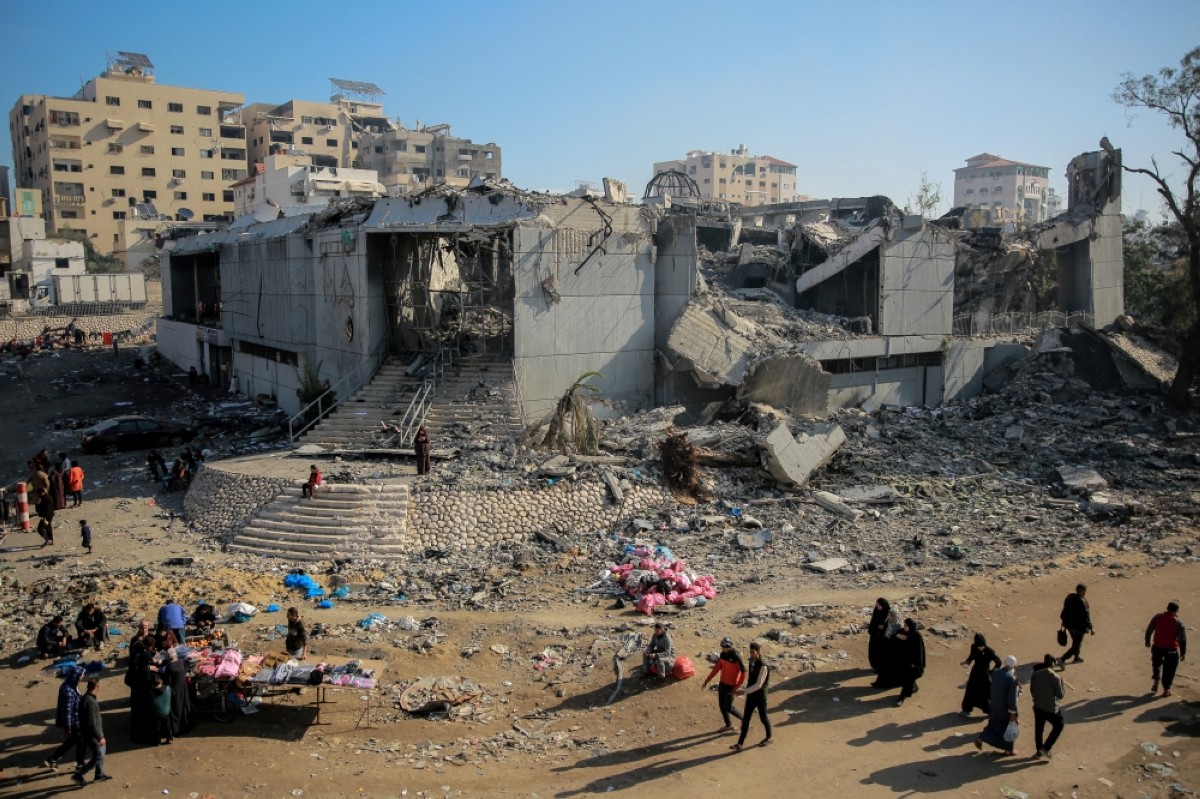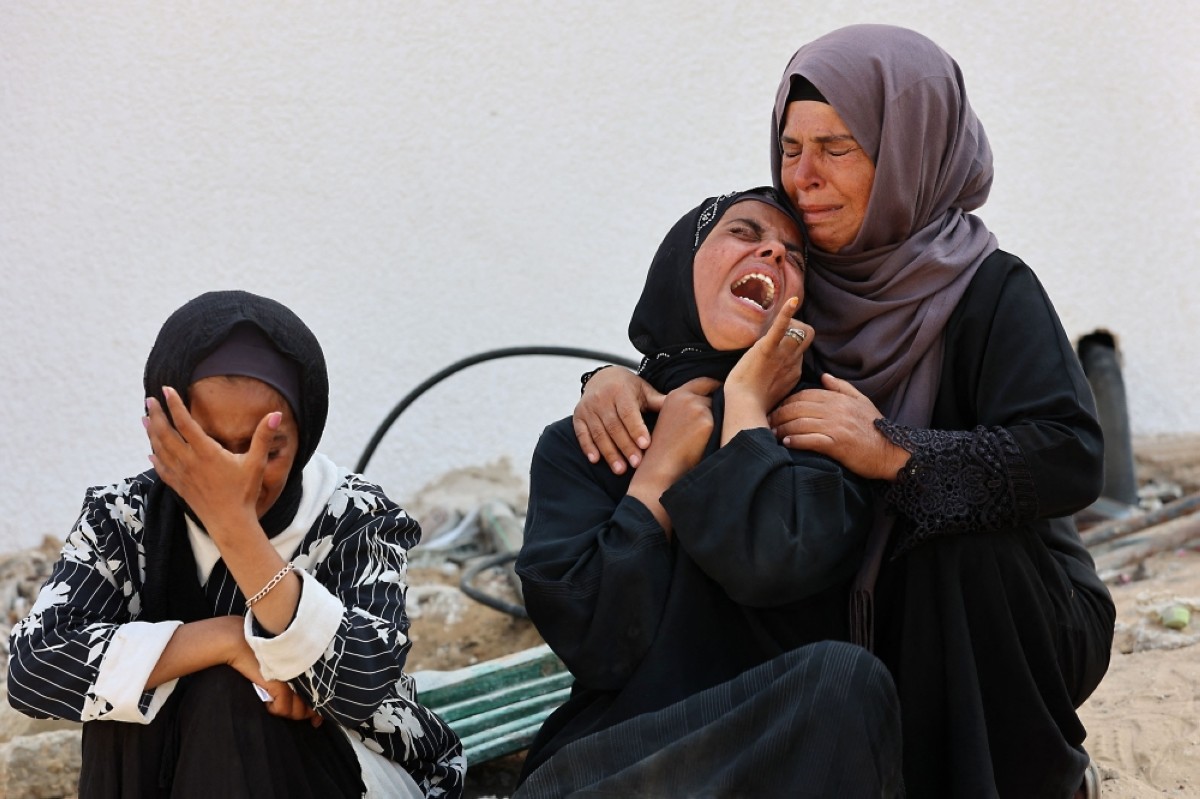GAZA: Bombed-out neighbourhoods, mass graves dug in the sand, spreading hunger and disease—as the bloodiest ever Gaza war nears 100 days, besieged Palestinians have endured ever new horrors. More than three months of relentless Zionist bombardment since the October 7 Hamas attack have taken a gruelling toll on Gaza’s 2.4 million people, most of whom have had to flee their homes.
"It has felt like 100 years,” said Abdul Aziz Saadat, who is among the flood of displaced Palestinians whose number the UN puts at 1.9 million, and who now lives in the densely crowded southern Gaza city of Rafah. "Some are living in schools, some on the streets, on the floors, others are sleeping on benches,” Saadat said in the city where many families now shelter in makeshift tents against the winter cold. "The war has not spared anyone.”
Zionist entity has vowed to destroy Hamas, the Islamist group that rules Gaza, after its militants broke through a high-tech security barrier and launched the worst ever attack Zionist entity. The bloody onslaught of October 7 left about 1,140 dead in Zionist entity, mostly civilians, according to an AFP tally based on official figures, and saw 250 hostages dragged back into Gaza.
Zionist entity’s relentless military response has caused massive destruction in the Gaza Strip, even by the grim standards of its four previous wars, fuelling anger across the Middle East and beyond. At least 23,357 people have been killed in the fighting, the majority of them women and children, according to the Hamas health ministry—or almost one percent of the population.
Like worst of Ukraine war
The war will reach the 100-day mark on Sunday, with no end in sight. Many thousands of strikes have rained down on the long-blockaded and densely populated Mediterranean coastal strip, cratering crowded urban areas and pancaking multi-storey residential buildings.
Much of northern Gaza has been reduced to a dusty wasteland and largely depopulated as Zionists troops and tanks have churned through it in a ground invasion from October 27 in which 186 soldiers have been killed. Gaza hospitals, schools, universities and places of worship have been hit, as Zionist entity has argued Hamas fighters are hiding among civilians and in a vast tunnel network below civilian infrastructure.
Entire neighbourhoods that once bustled with people, cars and donkey-drawn carts have been devastated in large-scale bombing starkly revealed in aerial photography. "It’s just so widespread,” said Jamon Van Den Hoek, an associate professor at Oregon State University who has been mapping the impact through satellite radar.
"It’s really unprecedented in the speed of the damage.” Between 45 and 56 percent of Gaza’s buildings had been damaged or destroyed by January 5, according to research he has conducted with Corey Scher at the City University of New York.
"The extent of damage that we’ve recovered or detected in Gaza only compares to the most severely hit areas in Ukraine,” said Scher. The researchers said their figures may be higher than data from satellite imagery, as radar can pick up not just a bird’s eye view but also damage to the sides of buildings.
A United Nations Satellite Center assessment, which covered just the first 50 days of the war, found around 18 percent of Gaza structures had already been destroyed or damaged. The war has also taken a toll on Gaza’s ancient heritage, including centuries-old buildings in its historic centre, a web of narrow lanes which thrived with market traders and gold merchants before the war. UNESCO said it was "gravely concerned” and stressed that "cultural property is civilian infrastructure, and as such must neither be targeted nor used for military purposes”. — AFP



